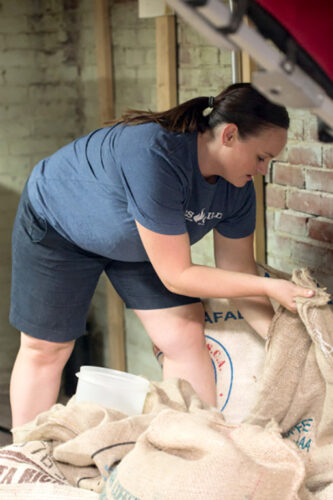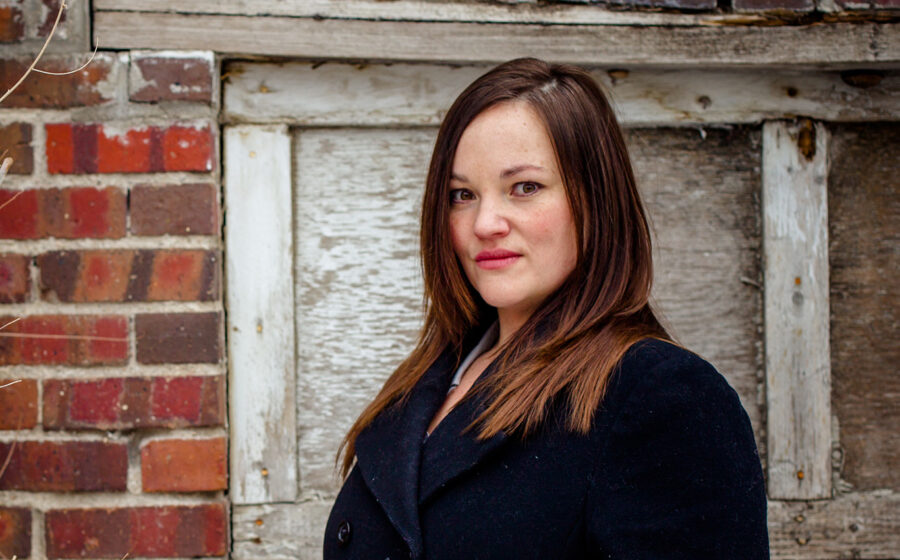[W]hen Hannah Ulbrich, a literature professor turned stay at home mom, decided to rejoin the working world, she took a chance—not stepping into the classroom again, but purchasing her favorite local coffee roaster, Copper Door Coffee Roasters, in Denver. This might seem an abrupt career switch, but Ulbrich wasn’t new to the coffee industry. “Probably like everyone, I started drinking coffee very young and was a barista through college and grad school,” she says. Ulbrich worked in small, local cafés as well as big ones like Espresso Roma in San Diego before graduating with her master’s in secondary education. When she and her family moved to Denver, she became good friends with the Copper Door’s former owner and fell in love with the coffee, so learning to roast and buying the business was a natural transition.
Ulbrich spent several months roasting under the former owner on the business’s US Roaster Corp three-kilo roaster as preparation for taking over. Building on seven years of wholesale roasting, Ulbrich expanded the wholesale and online business until deciding to open a Copper Door café, which she funded on Kickstarter and opened early September.

“It was hard to get a business loan for the full amount I needed to build out the café,” says Ulbrich. “Being a single owner and not having investors forced me to go to the banks, and they weren’t very flexible considering I had been a stay-at-home mom for years and couldn’t prove my income during that time. Hence, the Kickstarter.” Ulbrich secured equipment loans for the gear, including a Synesso Hydra espresso machine. The Kickstarter, which appealed to backers to pitch in for her “100% woman-owned” business, was successful. The roaster was moved from her garage, the build-out completed, and just a few days ago the brand-new Copper Door café opened.
“It’s so fun to see that we already have regulars,” says Ulbrich, who hired a manager and four part-time baristas when she opened the space. The coffee at Copper Door is a mix of traditional and modern: the espresso blend is darker, while single-origin coffees tend to be roasted lighter. “The business was established eight years ago,” says Ulbrich, “and our clients expect a certain flavor profile in the espresso. They tend to use it in milk, and I want to keep the espresso consistently rich and caramelized.” She keeps her café’s espresso dark, as well, while the pour over bar tends to feature the lighter roasted single-origin coffees, and Ulbrich enjoys offering samples and education to those customers who enjoy a lesson.
The café reflects Ulbrich’s lifestyle. “As a mom, my children are often with me—they know how to turn on the roaster, when it needs to be vented, and the different labels on the coffee bags. I wanted to build a space where people could work but also bring their children and be at ease, so we have a play area built in.” Ulbrich sources local, all-natural pastries and syrups, offers local Sanctuary Chai that’s sweetened with honey, not sugar, and stocks organic juices.
While the older generation of businessmen in Denver can be condescending—“They say, “Good for you honey, owning your own business!”—she observes that the younger generation of Denver’s coffee scene is mellow and community-based, with gender not an issue. Ulbrich says she is often the only woman invited to community meetings, but as far as she’s concerned, she just wants to roast great coffee and serve her neighborhood.
—Emily McIntyre is a regular contributor and a neat person.









